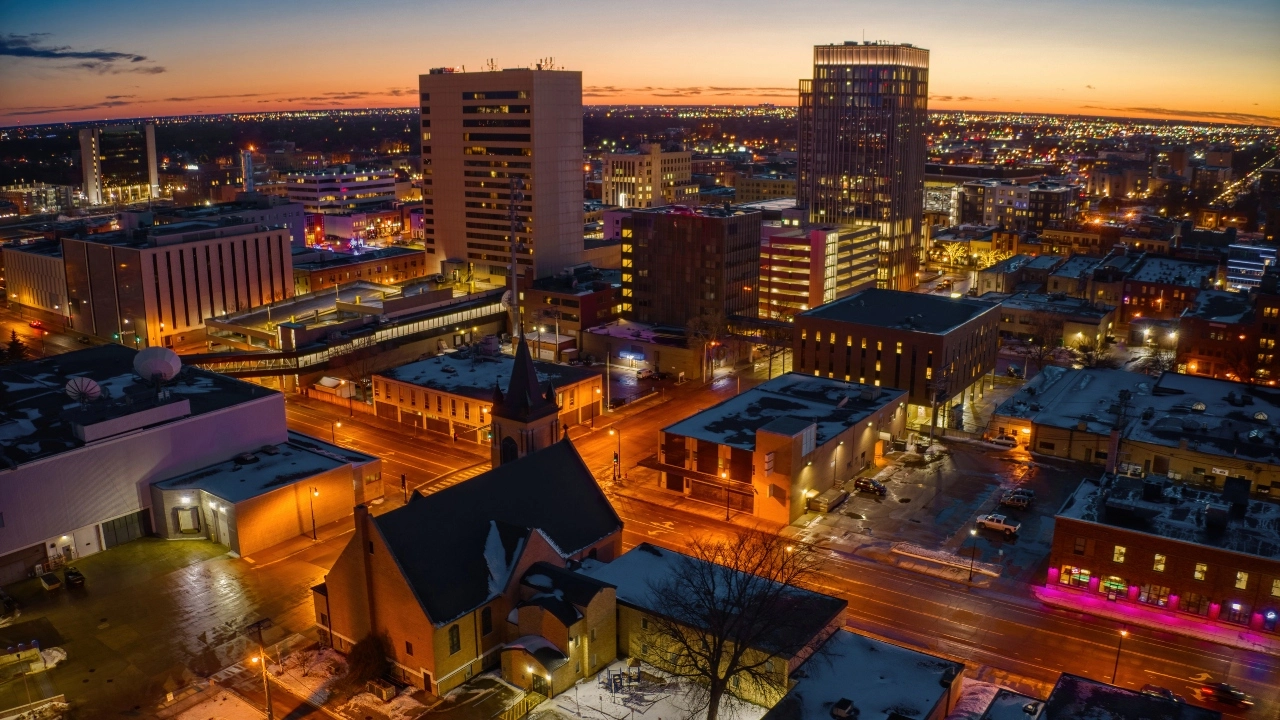(This story is part of a series examining state ballot initiatives as well as key issues and races that voters will consider on Nov. 8.)
At just under 775,000 people, North Dakota’s entire population could fit in San Francisco’s city limits – with room to spare.
Despite the physically vast, traditionally conservative prairie state’s relatively small constituency, a voter initiative that would legalize adult-use marijuana in North Dakota has big stakes: proving legalization is a true bipartisan issue and influencing attitudes in the U.S. Senate.
It could also lead to the opening of a new market generating sales of as much as $100 million in its first year and $285 million by the fourth year, according to MJBizDaily projections.
An expanded national market, active in traditionally conservative states, is key to the future of vital federal reform, legalization advocates say.
However, thanks in part to modest campaign investment from the cannabis industry, the pro-legalization campaign in North Dakota has been outspent in the final crucial month as opponents flood radio and Facebook with negative advertising.
Those opponents include hugely influential statewide business and law enforcement groups, and limited polling suggests a loss as supporters admit a close race is likely.
If voters in North Dakota do reject legalization, and other red states like Arkansas and Missouri follow suit, it would be a relatively rare setback for legalization – and one that could lead prohibition supporters to claim, with some justification, that the cannabis movement’s inexorable winning momentum over the past decade has finally slowed down.
‘Conservative’ legalization
If approved by voters, Statutory Measure 2 – one of only two voter initiatives on the ballot in North Dakota – would allow adults 21 and older to possess up to an ounce of cannabis and grow no more than three cannabis plants in their homes.
It would also compel the state health department to set up industry regulations by Oct. 1, 2023, while capping the number of cultivation facilities at seven and the number of retail dispensaries at no more than 18.
Other details, including taxation, would be left to the state Legislature.
Though North Dakota voters legalized medical cannabis in 2016, they soundly rejected an adult-use legalization measure in 2018 by a vote of 59.5% to 40.6%.
But supporters such as state Rep. Matthew Ruby, a Republican from Minot, believes there are “conservative” arguments in favor of cannabis legalization – a balance of personal freedom, mollified with restrictions cast as responsible versus the comparatively freewheeling situation in Colorado.
Some of the political “heavy hitters” that opposed the 2018 measure, including state law enforcement and business groups, are still opposed, but more passive, he said: They’re sitting on the sidelines “kind of hanging out” this time around rather than spending heavily on the opposition campaign.
In addition, Measure 2 scored a major endorsement from the Grand Forks Herald editorial board.
“That’s something we’ve never had before,” Ruby told MJBizDaily, while admitting the race will likely be close.
“It’s a conservative state. It’s still going to be tough. But I feel good about it.”
Advocates over Business
In a break from the trend seen in other red states, most of the $550,000 in campaign spending in support of the measure is coming from the national advocacy organizations familiar from legalization wins in other states.
The top donor is the New Approach Advocacy Fund, the prominent Washington DC-based drug-reform organization connected to the fortune of the late Peter Lewis, a former chair of Progressive Auto Insurance.
New Approach donated $306,839.22, and DC-based Marijuana Policy Project (MPP), which is lending campaign expertise, donated $70,000.
More stories in this series
- Polls suggest mixed results for adult-use marijuana legalization ballot measures
- ‘Unusual alliance’ of opponents jeopardizes Arkansas marijuana legalization measure
- Missouri adult-use cannabis measure would exclude minorities, critics say
- Maryland marijuana legalization expected to pass in November, but details pending
- Cannabis advocates face off as redistricting changes congressional maps
- Key congressional races the marijuana industry should watch
On the business side, a subsidiary of Curaleaf Holdings, a major multistate operator based in Massachusetts, donated $87,500.
On the business side, Highland Park, Illinois-based GR Holdings OH-ND contributed $87,500.
Pure Dakota and Strive Life, two existing medical marijuana businesses, contributed $70,000 and $17,500, respectively, records show.
There are eight existing MMJ dispensaries in the state, according to the North Dakota Department of Human Services.
Three are owned by Curaleaf.
Dark money, familiar foes
Though influential pro-business and law enforcement groups have all registered their opposition to the measure, the official opposition campaign is a modest outfit called Healthy and Productive North Dakota, chaired by a Tappen, North Dakota, resident named Kristie Spooner.
Spooner did not respond to calls and emails seeking comment.
But her material support – $2,500 to date, according to campaign finance records – is coming from a familiar source: a political action committee based in Highlands Ranch, Colorado, called Protect Our Kids.
That organization’s registered agent is Luke Niforatos, who is the executive vice president at Smart Approaches to Marijuana, arguably the nation’s most prominent prohibition advocates.
In comments to other media, Spooner and Niforatos said legalization would lead to increased use by youth and more traffic fatalities and exacerbate an existing mental health crisis.
“Marijuana can cause psychosis and a host of other mental health issues,” Spooner told North Dakota broadcaster Valley News Live.
“We already have a mental health crisis in North Dakota, we don’t need to add to it.”
At the same time, a dark-money organization is paying for a flurry of media advertisements seen on Facebook and heard on the radio over the past month.
That group, the Bismarck-based Brighter Future Alliance, has spent $133,367.46 to oppose Measure 2, mostly on media buys, according to campaign finance records.
Reached on his cell phone Tuesday, Pat Finken, Brighter Future’s chairman, requested MJBizDaily send questions via email.
National implications
Finken did not immediately respond.
But Ruby, the pro-cannabis state lawmaker, summed up Finken’s arguments as the same unoriginal “tried and true talking points” used by Spooner and Niforatos and heard elsewhere whenever legalization is at issue.
However, there is one twist peculiar to North Dakota, which is beset by a labor shortage: more potential employees disqualified by a drug screening.
“They’re just dusting off everything they’ve had in the past,” Ruby said.
“There’s not a lot of new thinking coming from them.”
But the old thinking could easily thwart necessary future reform such as banking and taxation that’s currently stalled in Congress for lack of support in the U.S., said Jared Moffat, MPP’s state campaigns manager.
“The national implications are huge,” Moffat said. “The big reason why a state like North Dakota matters is because it’s represented by two Republican senators in Congress (Kevin Cramer and John Hoeven).
“They can’t say, ‘Oh, this is a Democratic thing’ if North Dakota passes legalization. There aren’t enough Democrats in North Dakota to pass it.
“There will have to be a lot of Republican voters for this to pass.”
Chris Roberts can be reached at chris.roberts@mjbizdaily.com.





